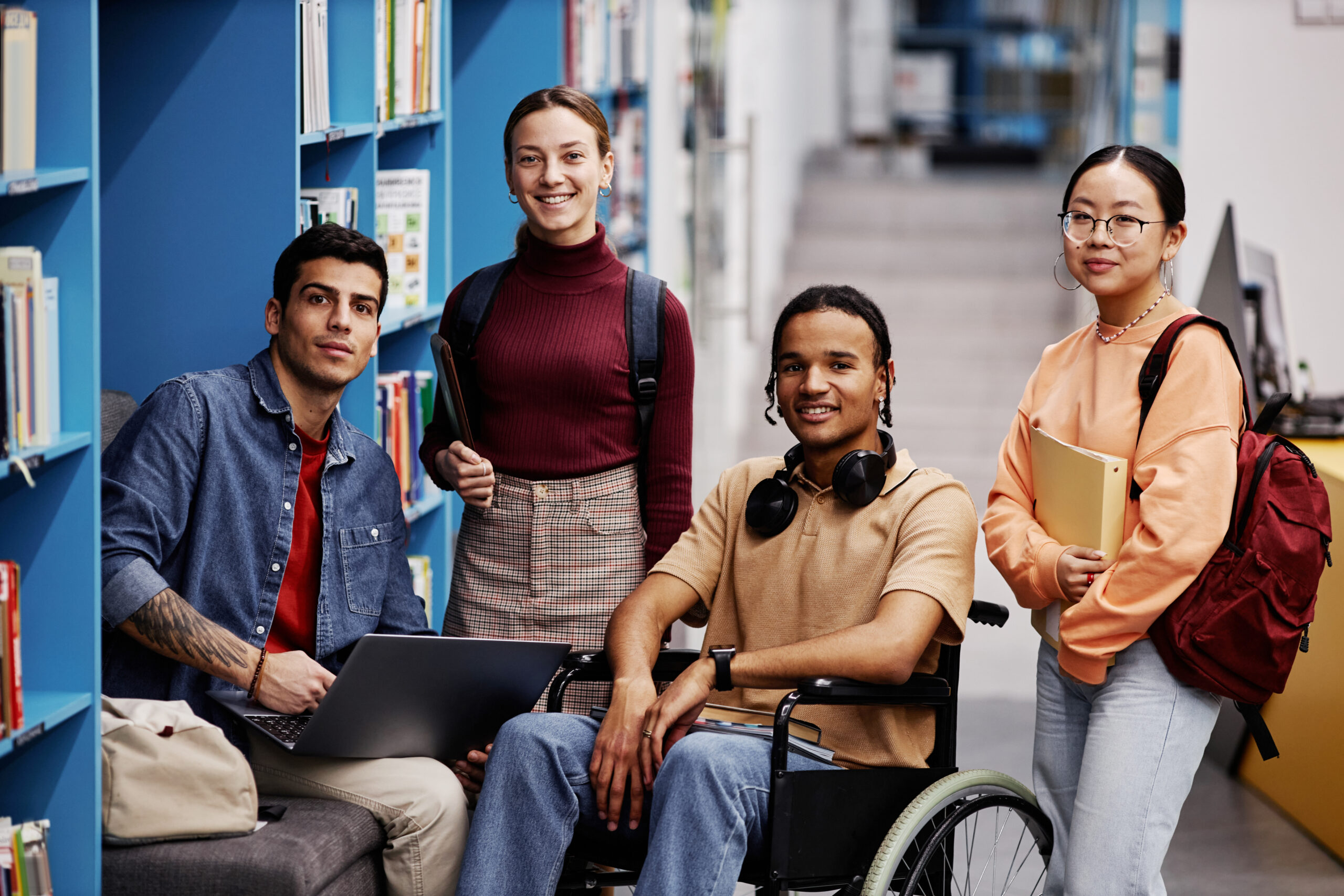Stories
Jessica, Staff
McMaster University, 2024

Challenges in the educational journey
Challenges were ever-present, throughout my educational journey, particularly during my studies. The pressure to complete my health science honours program in three years clashed with the taboo surrounding taking medical leave, exacerbating the difficulty of navigating accommodations. Peer support was minimal due to the competitive nature of the program, further isolating me during times of struggle. Transitioning to graduate school at McMaster brought even greater challenges. Separate accommodation processes for thesis-based and course-based students, coupled with pushback on accommodations, compelled me to switch programs to alleviate stress. Cultural issues within health science programs at the time, like the medical model of disability, exacerbated these challenges, despite some supportive instructors. In the realm of employment, challenges can continue depending on the manager and institutional pressures, such as the return-to-campus policy which added stress to navigating accommodations. Overall, accessibility and inclusivity on campus needs improvement, particularly in the “post-COVID” era where regression in cultural attitudes towards disability intensifies existing challenges, especially when the pandemic is not over for many of our community.
Access to digital learning resources
In my experience with digital learning resources, tools like Dragon NaturallySpeaking for typing proved helpful, while courses utilizing Avenue to Learn stood out for their accessibility features and responsive feedback system. Challenges emerged with textbook formats, particularly Kindle versions, prompting frustration with slow legal alternatives through library services and leading some to resort to illegal downloads to keep up with the pace of master's courses. Despite generally manageable website navigation, I occasionally relied on screen filters or dark mode to reduce fatigue, leveraging my tech-savviness to access additional resources like YouTube tutorials when necessary. Clear instructions were crucial, especially in subjective essay-based courses, where ambiguity in meeting expectations was common. The scattering of course outlines across multiple documents posed navigation difficulties which influenced my advocacy for plain language in documentation to ensure accessibility. While some courses presented rigidity, others offered remarkable accessibility, contributing to a rewarding learning experience overall.
Attitudes and societal perceptions
In my experience, attitudes and societal perceptions about disabilities significantly influence the educational environment. McMaster's decentralized structure means student experiences vary widely based on faculty and instructor attitudes. Some instructors are hesitant to provide accommodations, however, in recent years there has been a shift towards normalization of disabilities, thanks to increased advocacy. Disability community support can be transformative for undergraduate students, but it's often lacking for graduate students. My experience with an employee accessibility network profoundly changed my perspective, emphasizing the importance of employee resource groups. Support can vary depending on managers and onboarding processes, highlighting the need for consistency in HR practices. Inclusive leadership, like that of my current management, fosters a supportive environment where accessibility is prioritized. When accessibility becomes an expectation, people are generally receptive, leading to a more inclusive environment overall.
Effectiveness of support systems
After my first leave in undergrad, I hesitated for about a year before seeking accommodations due to the competitive nature of my health science program. McMaster has made efforts to combat this, but accessing services was prompted by a practitioner at the Student Wellness Center, who facilitated the right diagnosis for accommodations. The medicalized nature of the process by requiring a diagnosis by a specialist, poses a significant barrier, leading to delays in accessing accommodations. The frustrating reality is that while efforts are made to support students with accommodations and grants, systemic barriers persist. There's also a perception of capacity mismatch in handling accessibility issues. Many accessibility professionals find themselves stretched thin, balancing accessibility projects with other duties. Accessibility should ideally be integrated into educational systems, reducing the need for intensive student accessibility services. The current support systems at postsecondary institutions often react to accessibility needs rather than proactively address them. I strive to empower faculty and staff with accessible tools and training to independently address accessibility challenges, ultimately benefiting students and fostering a more inclusive educational environment.
Suggestions for institutional support
To enhance support for accessibility needs, clarity in the accommodation process is essential. A transparent database of available accommodations, including informal options like flexible scheduling, would be beneficial. Clear communication about preferences, such as communication style and deadlines and encouraging students to express concerns without fear of repercussion fosters a supportive environment. It's important to teach students how to communicate their needs effectively without being pressured in disclosing personal health information. Continued elevation of accessibility work, including knowledge transfer and collaboration, is vital for avoiding duplicated efforts and making meaningful progress. While strategic plans may prioritize accessibility, action is necessary to turn intentions into tangible improvements.
